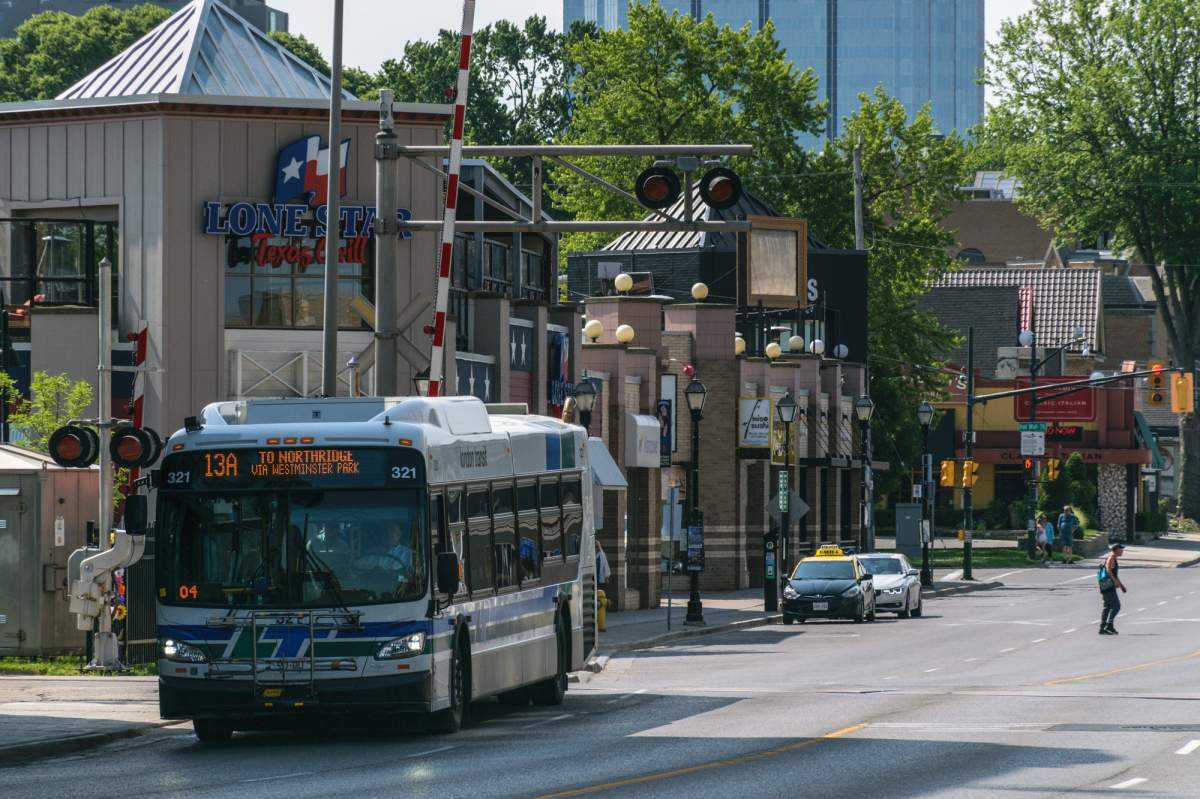The head of ATU Local 741 said he was “shocked and elated” to learn that after years of pushing, barriers have been approved by the London Transit Commission (LTC) in an effort to protect drivers amid the novel coronavirus pandemic.

The decision was approved at an emergency meeting of the LTC on Friday, held soon after Andre Fournier raised drivers’ concerns in an interview with Global News Radio 980 CFPL’s Devon Peacock.
The pandemic has brought an added urgency to the need for barriers, but the decision has been years in the making. An increased trend of violence in the workplace in 2017 prompted the LTC to launch a pilot project involving barriers on select buses in 2018.
“It makes it harder for someone to get at you, throw coffee on you, spit on you — spit seems to be a favourite of people these days — or punch from behind, sucker punch while you’re driving. That kind of thing,” Fournier explained.
The LTC was also among many city associations, boards and commissions involved in a workplace culture scandal that prompted a full review of the City of London’s harassment and discrimination policies in 2018.

Get weekly health news
On Friday afternoon, the commission approved a plan to implement plexiglass barriers on its roughly 220 buses at a total cost of roughly $1.5-million.
“I’m just a short guy and I was levitating in the air,” said Fournier.
LTC general manager Kelly Palecnzy noted that the barriers have been on the agenda for some time, but said the plan was fast-tracked over concerns that a number of different transit systems would be looking to do something similar which could potential lead to delays in orders.
Paleczny added that barriers have to be specifically designed based on the “series” of bus.
“We have 170 of a specific series of bus so we’ve ordered those. The remaining buses have to be scanned and a prototype has to be developed before the barriers are ready for those.”
Still, Fournier notes that the barriers have yet to arrive — Paleczny said they should arrive in eight to 10 weeks — and that the road to approval has been a bumpy one.
“Even when they get here, I guarantee you morale will still be low,” Fournier said.
While Fournier stresses that there’s “nothing good about COVID-19,” he does concede there is a silver lining.
“Safety’s going to come out of this, if anything good.”










Comments